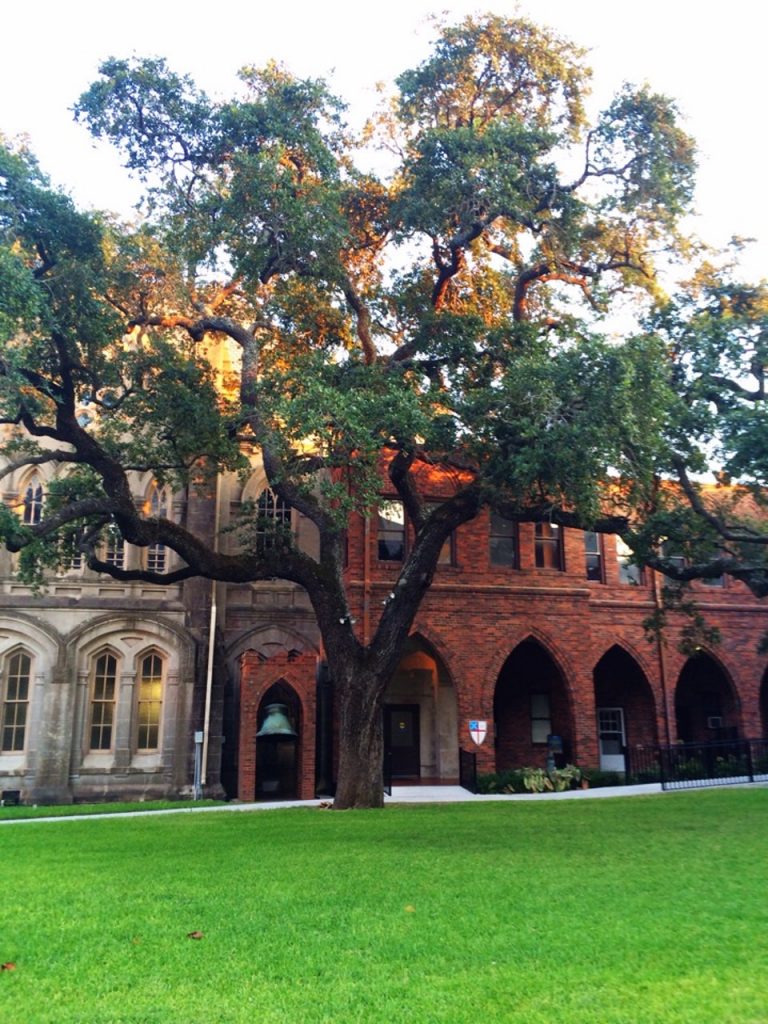A private Episcopal school in Texas is being sued by a former student and his parents claiming that the student was bullied because of his race. The school, which handed down one-day suspensions to the admitted bullies, is claiming immunity on this matter because it is a religious school.
The Huffington Post reports:
Maureen Beans and her son, C.R., had a horrible experience at Trinity Episcopal School in Galveston, Texas, according to the lawsuit filed in May.
C.R., who attended Trinity for sixth and seventh grade, starting in 2014, was a black student at the overwhelmingly white private school. He claims he was relentlessly bullied, sometimes in ways that appeared racially motivated.
In one incident, his three tormentors allegedly gave him pieces of origami designed to resemble hoods worn by Ku Klux Klan members.
Throughout this time, school administrators ignored the problem, even after C.R.’s family brought it to their attention, the lawsuit says. Even though the students admitted to the bullying, according to the lawsuit, they were only given one-day suspensions and required to apologize ― consequences the plaintiff deems sorely lacking.
After that, Beans took her son from Trinity Episcopal School and enrolled him elsewhere, and sued the school because of what they called racially motivated bullying.
The school wants the lawsuit dismissed because of its status as a religious institution.
This legal principle, also called the church autonomy doctrine, holds that religious institutions do not need to follow the same laws as non-religious entities, like public schools, if it conflicts with their religious doctrine.
It applies in cases where a decision from a civil judge would infringe on the internal religious organization of a group, like how a religious organization can choose to have only male or female clergy members perform specific tasks.
Trinity says it disputes the assertions made in the Beans’ lawsuit. But it is also essentially arguing that because it is a religious organization, it is allowed to maintain its own discipline system, which may or may not involve consequences for racist bullying.
Attorneys Levi G. McCathern, II and Daryoush Behbood of the McCathern Law Firm in Dallas are representing the family, according to the suit.
According to the family’s legal team the boy has had a hard time adjusting to subsequent schools. By all indications he was a normal student before the bullying began.
“Prior to filing this lawsuit, we tried to resolve the matter with Trinity and David C. Dearman—the headmaster of Trinity. We gave them every opportunity to meet with us to try and resolve the case without costly litigation,” said Behbood in statement this week.
“Trinity’s leadership, however, had no interest in speaking with us despite the perpetrators of the bullying and racial discrimination admitting their actions to Mr. Dearman and the school being well aware of the ongoing problems.”
Behbood wrote that since the lawsuit went public more families have reached out to the law firm for help.
Trinity’s response states that the lawsuit asks the court to review disciplinary decisions taken by the school in response to complaints by the child’s mother. Because of the Constitution’s protections on the practice of religion, however, “the courts cannot second-guess these decisions, even in the guise of purportedly ‘secular’ causes of action arising from tort principles,” the filing states.
KPRC TV-2 published the following statement from the school:
“Trinity Episcopal School Galveston is saddened by the lawsuit that has been filed by the mother of a former 7th grade student against the school, its head, and three of her son’s former classmates.
“The school has policy that prohibits any form of bullying or discrimination. As soon as the school was informed of an issue over a year ago, it addressed it immediately, consistent with its policy. The mother withdrew her child from the school four days later.
“Trinity Episcopal School values diversity and is committed to upholding standards that reflect our mission in Christ. Because this dispute involves children, we will have no further comment on the litigation.”
The Episcopal Church teaching on racism and racial reconciliation may be found here. A 1994 pastoral letter is here. Diocese of Texas material on racism may be found here.
Added: (from the comments) The court documents are here.

